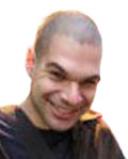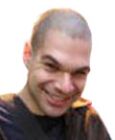Philosophy
Deepak Chopra Takes on Experimental Philosophy
Deepak Chopra responds to experimental research on the 'true self.'
Posted June 28, 2011

In my line of work -- doing experimental studies in cognitive science -- one definitely doesn't expect to end up involved in a debate with Deepak Chopra. But, oddly enough, Chopra has just written a piece criticizing some of our research.
In our original paper, George Newman, Paul Bloom and I were trying to figure out how people ordinarily use the notion of a 'true self.' For example, take a man who is gay but who is also an evangelical Christian. He might experience a kind of inner conflict, with his emotions or desires drawing him to sleep with other men but his religious beliefs drawing him to refrain from doing so. But now suppose we tell him: 'Be true to yourself.' Which part of his self would he have to follow in order to obey this advice? Is his true self to be found in his emotions and desires, or is it in his religious beliefs?
What we found was a little bit surprising. People's answers to these questions seemed to depend on their own values. Thus, liberals tended to say that he could be true to himself by being with other men, while conservatives tended to say that he could be true to himself by following his religious convictions. Somehow people's notion of the true self appears to be infused with their own value judgments. (For a quick summary of the results, see this brief piece.)
Chopra then disagrees with the basic premise behind our research. He says that people may seem on the surface to be conflicted, with different parts of themselves pulling in different directions, but that ultimately -- at their very core -- people are actually deeply unified:
If you ask people who they really are, why should their answers mean much? They haven’t undertaken the inner journey that Socrates was pointing toward. “Know thyself” doesn’t mean taking a thirty-minute quiz. It means going through a lifelong process of self-reflection, contemplation, and questioning. The point is that when this journey is taken seriously, the opposites within ourselves are resolved. The war between reason and unreason exists at many levels of the self, but it doesn’t exist at the level of the true self. A river has turbulent currents until you reach the very bottom, where the water is calm and barely flows. This has been the position of the world’s wisdom traditions, and the true self has gone under different names: Atman, spiritus, the soul, and many others. A true experimental philosophy, which sounds like a very good idea, would test the proposition that unity lies beyond duality. That is what philosophy has tried to do since the beginning. For a conflicted gay Christian, such a journey seems far more promising that batting him around between various opinions, right and left.
Instead of responding to this objection myself, I would just be curious to hear what other people have to say. So, what do you think?


